| Umělec magazine 2006/3 >> Petra Herotová | List of all editions. | ||||||||||||
|
|||||||||||||
Petra HerotováUmělec magazine 2006/301.03.2006 Jiří Ptáček | reviews | en cs de |
|||||||||||||
|
Petra Herotová was born in 1980 and since 2004 has been studying in the intermedia and conceptual studio of Jiří David at Prague’s VŠUP.
Trying to define the key subejcts of Petra’s work, we can use words like “communication,” “family,” “identity.” But that is so general that we should add at least three more concrete indications: “screwdriver,” “smilies” and “daddy.” What comes out of this? Herotová is always personal and at the same time direct and funny. That is why we have a chance to step back from real problems. For example the heavily drawn and written on file Subvirtual World (Subvirtuální svět) brings us into an unknown space behind virtual reality. Herotová explains to us how this world arises and how – in certain circumstances it evokes uncontrollable processes which disturb communication and relationships between people. The artist behaves like a child playing a scientist. She makes up her own definitions (i-humus, tooth of the internet, etc.) and carefully describes the functioning of “subvirtuality.” The texts are interwoven with schematic plans of factory operations that are a visible and mechanical analogy of the invisible, digital world. Problems with communications which the Subvirtual World is about are met with a pure joy of creating a funny fiction. Communication is connected to the collection of drawings called Daddy's Statements (Taťkovy výroky). They are based on the widespread experience with parents’ education whose inertia continues although we think ourselves adult. The advice, instructions and life truths which the father gives to his daughter are in Daddy’s Statements a personal but also a general record of the moments which make us feel embarrassed. But Herotová doesn’t judge her father, she is just stating. The father is by far the most frequent subject of Petra’s interest. His tools (mainly the screwdriver), his car, his clothes, his home activities – everything gives her projects a shade of obsession, although portrayed with a detachment, without thinking that the Electra complex could be something wrong. On the other hand it seems to set the father’s possessions and habits in the tenderness of love. Daddy is a myth here and a mystery and we – although girls – have inherited a piece of his myth and mystery. At first sight her video-installation which recalls the departed Croatian countrywoman Slávka Žukovičová-Máchová seems different. Herotová paid tribute to a significant figure of the Czech community in the Balkans in a nearly edifying form. To the video in which she recites her poem, she added printed materials which show the paedagogical and literary works of Slávka Žukovičová-Máchová. When we learn that the Herot family lived for some time in Croatia, we realize that this project too is of a personal nature. Somewhere in the background there is Daddy again (!), whose Czech language to this day reminds one – in Herotová’s words – of the “embalmed” language of the Czech minority in Croatia. The works of Petra Herotová have a conceptual basis and are created and presented with deliberation. Thus we can see more clearly how she in a game with her own irrational relationships can create a parallel of relationships in which we all are somehow involved.
01.03.2006
Recommended articles
|
|||||||||||||

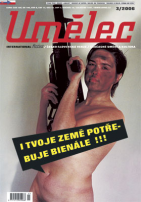


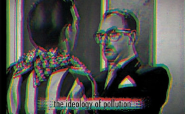
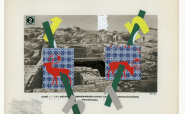
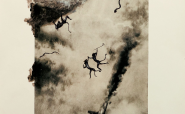
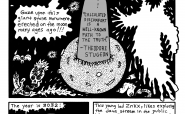
Comments
There are currently no comments.Add new comment